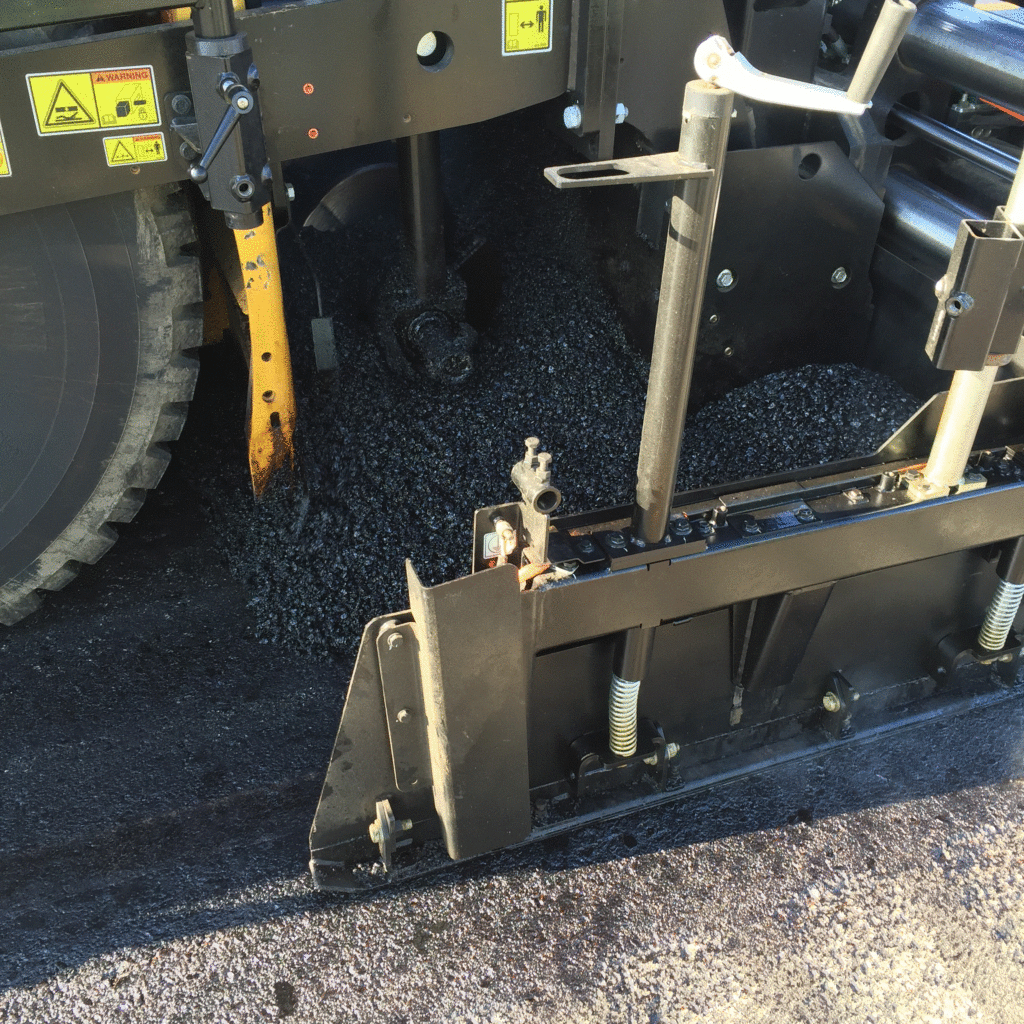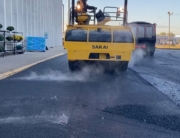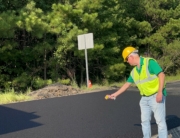Rubberized Asphalt History
Rubberized asphalt history is not new but just starting to resurface throughout the US. It is produced from grinding up whole scrap tires from automobiles. Rubberized asphalt consumes an estimated 220,000,000 pounds or around 12 million tires annually. (That number is expected to grow) More and more states are starting to see the benefits of rubber in asphalt and recently have been taking on the old technology and mastering the process. With all the tests done and the years of modifying the processes, the benefits are starting to show for themselves.
- Used as joint sealers, patches and membranes in the late 1930’s
- 1950’s there were studies with the effects of rubber in asphalt
- Started asphalt use in the 1960’s
- 1990’s research was done with a heavy vehicle simulator to test durability
- Used for chip seals, inter-layers, and asphalt laying
- Used extensively in California, Arizona, Florida and Texas
- Many more states have adopted this process
- Started seeing a rise in use the last 10 years
Rubberized asphalt history has brought many benefits that afford to asphalt plants when they use Elastiko Engineered Crumb Rubber (ECR) instead of polymer as a means of modification. Polymer modified asphalt tends to be sticky and hard to process through a plant’s system. As a result, production rates can be much less than if using ECR to modify your mix. Also, there tends to be no build up in conveyors, silos or other plant equipment when using rubberized asphalt mix.
With the growing support of rubberized asphalt, more states are starting to adopt this process. With all the tests done and the years of modifying the processes, the benefits are starting to show for themselves.
• ECR reduces the cost of a twograde bump: by $2-$4 per mix ton
• ECR makes your plant run faster compared to polymer modified mixes: lower mix viscosities permit 10-15% faster plant throughput
• ECR generates less waste: mixes leave the truck with almost no residue in the bed, reducing truck cleanout waste
• ECR can extend your paving season: ECR mixes can allow paving and compaction in colder temperatures
• ECR allows more efficient compaction: ECR mixes typically require 10-20% fewer roller passes to achieve compliant compaction
• ECR pavements work well in thinlay applications: Compared to standard unmodified hot mix asphalt, ECR pavements can achieve greater durability with thinner lifts.
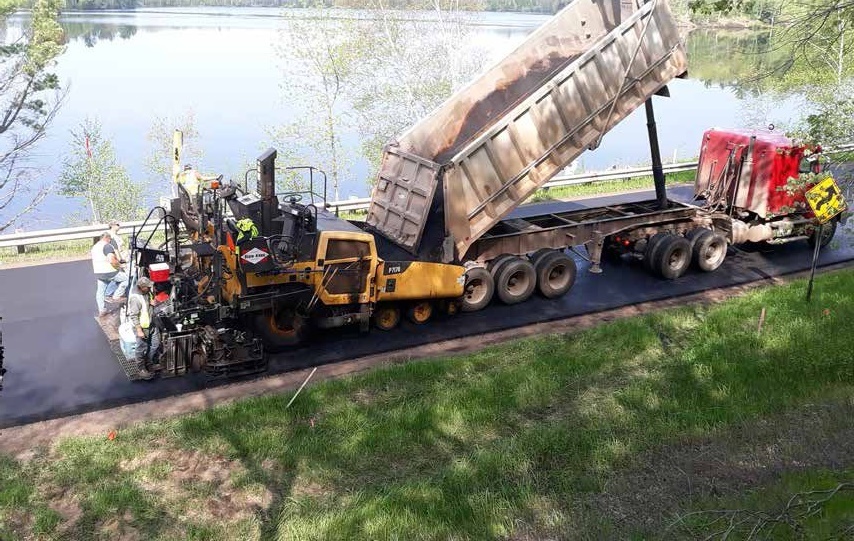
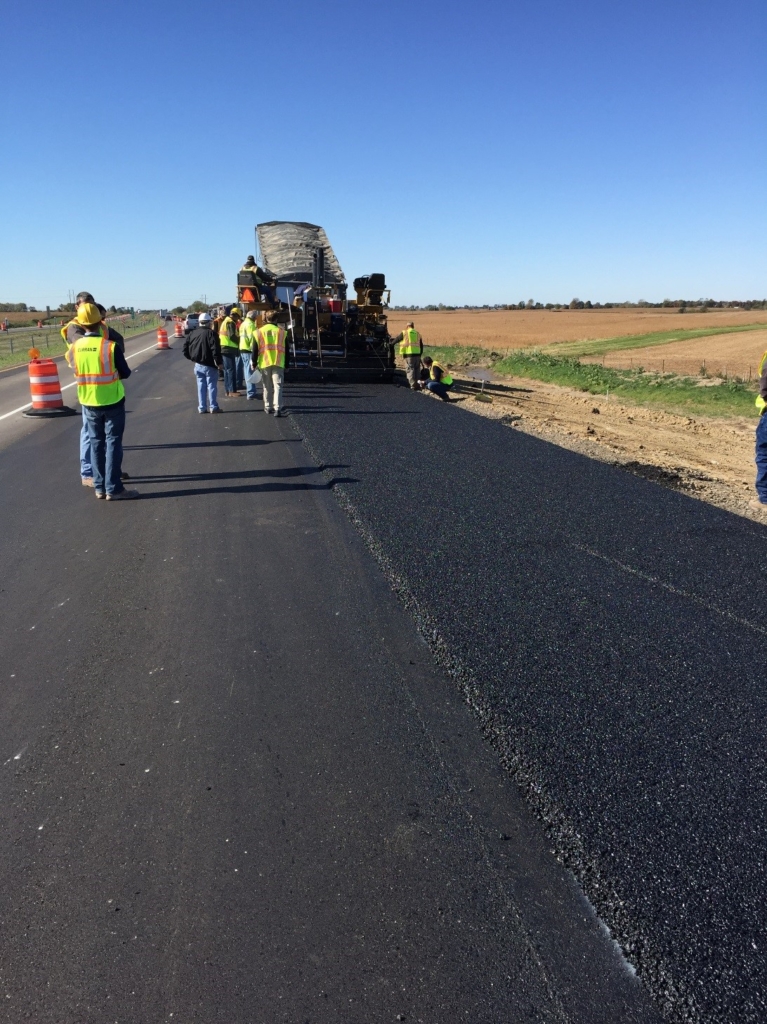
Asphalt Plus LLC
Asphalt Plus LLC is a specialty chemical and equipment manufacturing company headquartered near Chicago, IL and experts on rubberized asphalt history. We produce Elastiko engineered crumb rubber additive for rubberized asphalt application. Over the past two decades, extensive lab also field work has created a new binder modification option for asphalt producers. Dry process rubber modification of asphalt also allows you to produce rubber-modified mixes that perform like polymer-modified mixes without the use of terminal blending. Asphalt Plus engineered rubber has endured a wide range of harsh climate & road use conditions.
With many years of experience in rubberized asphalt history and many projects under our belt, Asphalt Plus has your answer to road improvements and getting the most out of our roads.
Sources: https://www.calrecycle.ca.gov/



